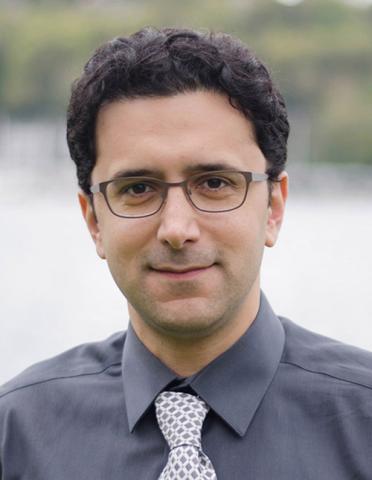External Advisory Committee

Libby Alpern
Elizabeth Alpern, MD, MSCE
Lurie Children’s Hospital of Chicago, Northwestern University Feinberg School of Medicine
Associate Chair for Faculty Development in the Department of Pediatrics
Chief of Emergency Medicine in the Department of Pediatrics
Professor of Pediatrics Emergency Medicine
Dr. Alpern is a pediatric emergency physician, clinical epidemiologist, and Professor of Pediatrics at the Center for Healthcare Studies at Northwestern University. Dr. Alpern’s research is focused on the use of large databases within a research network, such as PECARN, to improve the quality of emergent care delivered to children. Her work investigates the epidemiology of injuries and illness in children and seeks to improve the quality of evidence-based firearm emergent care.

Emmy Betz, MD, MPH
University of Colorado
Associate Professor, Deputy Director, Injury & Violence Prevention Center
Department of Epidemiology
Emergency Medicine
Injury & Violence Prevention Center
Marian Betz, MD, MPH is trained in emergency medicine and epidemiology, with a research focus on traffic safety and suicide. She is an attending physician at the University of Colorado Hospital, as well as an assistant professor of both emergency medicine, at the CU School of Medicine, and epidemiology, at the Colorado School of Public Health. She completed medical and public health training at Johns Hopkins University.
Dr. Betz was awarded a Paul Beeson K23 award from the National Institute on Aging for her work to develop a tiered assessment system for older drivers. She has served as an invited member of national workgroups to develop guidelines for suicide prevention by emergency providers and currently serves as an elected section councilor for the Injury Control and Emergency Health Services Section of the American Public Health Association. She was the 2014-15 president of the Academy of Geriatric Emergency Medicine (part of the Society for Academic Emergency Medicine).

Charles Branas, PhD, MS
Columbia Mailman School of Public Health
Gelman Endowed Professor
Epidemiology
Chair, Department of Epidemiology
Dr. Branas is Professor and Chair of Epidemiology at the Mailman School of Public Health at Columbia University. He has an extensive background conducting research that examines an array of risk factors for firearm-related injuries among children at the individual and community level. Much of his research has focused on place-based spatially-oriented risk factors for firearm carriage and use among children and youth populations.

Rod Brunson, PhD
University of Maryland
Professor
Rod K. Brunson is a professor in the Department of Criminology and Criminal Justice at the University of Maryland. He is a widely sought-after speaker and has received numerous professional awards in recognition of his distinguished body of scholarly work, including, American Society of Criminology, Fellow (2019). Furthermore, Dr. Brunson co-directs the Racial Democracy Crime and Justice Network, social scientists conducting research on crime, inequality, and the criminal justice system.
Professor Brunson’s expertise centers on police-community relations, youth violence, and evidence-based criminal justice policy. He has consistently called for effective crime reduction strategies that do not result in racially disparate treatment of minority citizens and disadvantaged neighborhoods. Dr. Brunson’s scholarship appears in the Annual Review of Sociology, British Journal of Criminology, City & Community, Criminology, Criminology & Public Policy, Evaluation Review, Justice Quarterly, Urban Affairs Review, and Urban Health.
Shani Buggs, PhD, MPH
University of California
UC Davis Violence Prevention Research Program
Assistant Professor
Shani Buggs is an Assistant Professor with the Violence Prevention Research Program. Her primary areas of research include community-level gun violence prevention programs and policies, firearm access and availability, comprehensive approaches to reducing violence through policies and programs at the local, state, and federal levels, and intersections between drugs, drug law enforcement, and gun violence. She completed her master’s degree in Public Health and her doctorate in Health and Public Policy at the Johns Hopkins Bloomberg School of Public Health.

Andrew Morral, PhD
Senior Behavioral Scientist, Director of the National Collaborative on Gun Violence Research
Andrew R. Morral is a senior behavioral scientist at the RAND Corporation, leader of Gun Policy in America, a RAND initiative to understand the effects of gun policies, and director of the National Collaborative on Gun Violence Research, a philanthropy that has awarded more than $21m in research funding to non-RAND researchers. His expertise includes program evaluation, modeling and simulation, survey research, and performance measurement. He has developed innovative techniques for examining drug use epidemiology and survey response accuracy, and causal modeling software that is now widely used. In addition to his gun policy work, his recent research includes studies examining the prevalence and characteristics of sexual assaults of members of the U.S. military. Morral has published dozens of peer-reviewed reports, and has served as a science advisor to the National Institute of Occupational Safety and Health, to the Department of Homeland Security’s (DHS) Center for Risk and Economic Analysis of Terrorist Events, and to the DHS Chemical Facility Anti-Terrorism Standards program. He holds a Ph.D. in psychology from New School for Social Research.

Jesenia Pizarro, PhD
Arizona State University
Associate Professor, School of Criminology and Criminal Justice, Arizona State University
Jesenia Pizarro, Ph.D. is an Associate Professor in the School of Criminology and Criminal Justice at Arizona State University. Her research focus on the importance of understanding the proximal event and situational factors that result in violence (i.e., the who, where, when, and why), and the effect the situational context of violent events has on the social reaction of practitioners and other social actors. While her research focus centers on violence, she also studies the politics of punishment and the criminology of micro places. Her corrections work has focused on the administration and use of administrative segregation units throughout the country’s state correctional systems. Her crime and micro places has focused on the distribution of disorders that can impede the development of healthy neighborhoods.
Dr. Pizarro is currently a member of the Firearm Safety Among Children and Teens Consortium (FACTS), and the Homicide Research Working Group (HRWG). She is also a board member of Arizonians for Gun Safety and that National Center for School Safety. Throughout her career, she has worked with various police departments and agencies throughout the country in joint efforts to curb violence (i.e., Detroit, MI; Flint, MI; and Newark, NJ), and has managed funded grants that focus on urban violence and intimate partner homicide prevention, awarded by the Bureau of Justice Assistance, Office of Juvenile Justice and Delinquency Prevention, National Institute of Health, the National Collaborative on Gun Violence Research, and the Center for Disease Control in various capacities and roles.
Sonali Rajan, EdD, MS
Associate Professor of Health Education
Department of Health and Behavior Studies
Teachers College, Columbia University
Dr. Sonali Rajan is an Associate Professor of Health Education in the Department of Health and Behavior Studies at Teachers College, Columbia University. She also holds a secondary faculty appointment in the Department of Epidemiology at the Mailman School of Public Health. Dr. Rajan is a school violence prevention expert, who studies gun violence and adverse childhood experiences. For the past several years, Dr. Rajan has worked on the implementation and evaluation of health education and behavioral health initiatives aimed to mitigate youth engagement in high-risk behaviors and promote positive youth development, primarily in NYC public schools, but also in other hospital and community-based settings. Selected recent publications are listed below.

Therese Richmond, PhD, CRNP, FAAN
Andrea B. Laporte Professor of Nursing
Associate Dean for Research & Innovation
Professor of Nursing in Surgery
Perelman School of Medicine
Dr. Richmond is the Andrea B. Laporte Professor at the University of Pennsylvania, School of Nursing and serves as its Associate Dean for Research & Innovation. She has an extensive program of research aimed at improving recovery from serious injury and firearm violence by addressing the interaction between physical injury and its psychological repercussions. Her science also focuses on prevention of violence and firearm violence. She serves on the Executive Committee of the Penn Injury Science Center where she directs the Research Core.
Frederick Rivara, MD, MPH
Professor of Pediatrics, University of Washington
School of Medicine Adjunct Professor, Epidemiology, University of Washington
School of Public Health Vice Chair for Academic Affairs, Department of Pediatrics, University of Washington, School of Medicine
Dr. Rivara is a Professor of Pediatrics at the University of Washington. He has worked in the area of violence and injury control for the last 30 years, with many studies focused in the area of firearm injury prevention. He was instrumental in studies demonstrating the correlation between safe storage of firearms and lower rates of unintentional injury. Dr. Rivara has published analyses examining the barriers to safe storage counseling among healthcare providers and has evaluated both community and health care setting based safe storage interventions.

Ali Rowhani-Rahbar, MD, PhD, MPH
University of Washington, School of Public Health
Professor, Epidemiology
Adjunct Professor, Pediatrics
Dr. Rowhani-Rahbar is an epidemiologist and Associate Professor at the University of Washington School of Public Health. His research on self-directed firearm violence is focused on means safety to understand the determinants and consequences of unsafe firearm storage practices and to develop approaches to promote safe storage. His research on interpersonal firearm violence focuses on the nexus of trauma and crime to inform interventions that prevent firearm violence, promote healing, and reduce recidivism. He leads and contributes to several studies on causes, correlates, and consequences of firearm injury and death.

Daniel Webster, ScD, MPH
John Hopkins Bloomberg School of Public Health
Professor
Department Health Policy and Management
Dr. Daniel Webster is the Bloomberg professor of American Health in Violence Prevention, Director of the John Hopkins Center for Gun Policy and Reserach Department of Health Policy and Management, John Hopkins Bloomberg School of Public Health, prior Co-Director of the John Hopkins Center for the Prevention of Youth Violence. He is one of the nation’s leading excperts on the prevention of gun violence and has published over 120 articles in scientific jounrals on topics including gun policy, violence prevention, youth violence, intimate partner violence, suicide, and substance abuse.